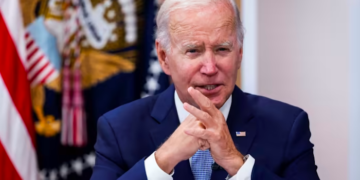The Russian Foreign Ministry reported that two Russian diplomats were killed and numerous others injured when a suicide bomber detonated his explosives near the Russian Embassy in the Afghan city of Kabul on Monday.
One of the first attacks on a foreign mission since the Taliban took power in August of last year ended with the suicide bombing of the consular part of the embassy.
The Russian foreign ministry reported that “two employees of the diplomatic post were murdered as a result of the attack, and there are also Afghan civilians among the wounded.”
Abdul Nafy Takor, spokesman for the Afghan interior ministry, told AFP that a suicide attacker was shot and killed by Taliban guards at the Russian embassy.
He reported that an Afghan civilian had been murdered and numerous others had been injured.
Heavy Taliban security swiftly shut off the area, as they had after other recent attacks, preventing reporters from recording there.
So far, no group has taken responsibility for the embassy attack.
“Without a doubt, we are talking about a terrorist attack, which is totally reprehensible,” Dmitry Peskov, a spokesman for the Kremlin, told reporters in Moscow.
While violence in Afghanistan has decreased since the Taliban came back to power, multiple bombings, some of which have targeted minority communities, have rocked the country in recent months. Many of these attacks have been claimed by the terrorist Islamic State (IS) group.
One week ago, a suicide bomber attacked a large mosque in western Afghanistan, killing at least 18 people, including a prominent imam.
Cleric Mujib ur Rahman Ansari was slain in the Herat incident; he had advocated beheading everyone who did even the “smallest act” against the government.
After Rahimullah Haqqani, another pro-Taliban preacher, was slain in a suicide bombing on August 11 at his madrassa in Kabul, Ansari became the second such priest to be killed in an explosion in less than a month.
In 2018, several mosques across the country have been attacked, with some of these incidents being claimed by the terrorist group Islamic State (IS).
On August 17, at least 21 people were killed and dozens more were injured when an explosion rocked a mosque in Kabul.
Shiites, Sufis, and Sikhs have been among the most frequent victims of IS’s atrocities.
Although both IS and the Taliban identify as Sunni Islamists, their ideologies and practices are very different, making them bitter enemies.
While Taliban officials may insist that IS has been vanquished, experts point to them as the biggest security threat facing the Islamist government in power in Afghanistan today.





























